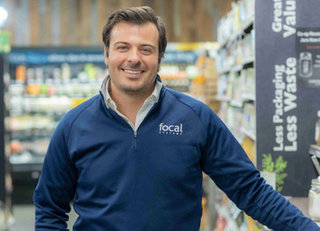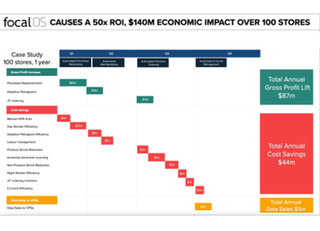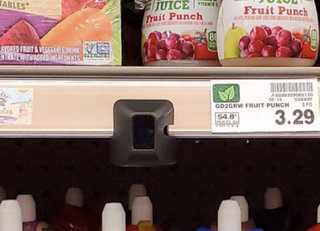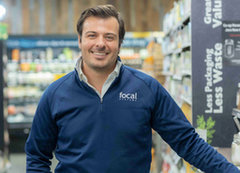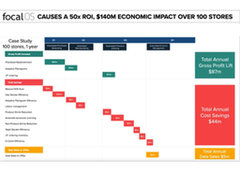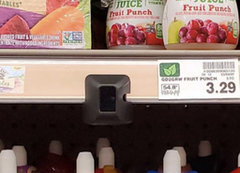Fearless Entrepreneur With Transformational Ideas
In 2012, when Francois Chaubard was a research assistant at Stanford AI lab, the AlexNet paper took the research world by storm. The paper was the first to apply neural-networks to massive amounts of computation and data to drop error rates on key benchmarks from 30% to <10%. Given the decision-making prowess of this step function in AI, many of the world's top AI labs quickly tossed out the old "feature engineering" methods of the past, and adopted this new practice of adding more data and letting heavy amounts of compute do the work to get to state of the art AI.
"The AlexNet paper completely transformed AI from being some cool thing that only worked in the lab to something that can drive cars or something that you can talk to like Amazon Alexa. The idea called back propagation running on massive amounts of data on GPUs really was pioneered from that paper. And then everyone who was in AI, stopped what they were doing and started to embrace the new method called "deep learning" in less than a year," recalls Chaubard who says he was lucky to be right at the dawn of a new tech evolution.
4 years after AlexNet, pundits kept calling for the "Age of Automation" however, one thought kept haunting him: In this age of automation, why has nothing been automated. We continue to drive our cars or make our own cheeseburgers. "One reason for that," Chaubard explains, "The best deep learning engineers in the world were just doing research. The top minds at Stanford AI Lab, Google Brain or DeepMind focused on research and publishing papers. No one was building applications other than Waymo and Tesla." He firmly believed that people ought to be building things with this AI.
In my view, over the next 20 years, machine learning technology will eat software, and that algorithms will take over the world
The Crazy Guy
His next stop: venture capitalists. "They all said I was crazy. Their rationale was that there is going to be no grocery stores open in the U.S in five years. That was 2015. It's 2022 now and we have more grocery stores than we did back then. There were 30,000 grocery stores in 2015 and now there are 34,000. So, they were a bit wrong in their analysis," laughs Chaubard. They also said Amazon was going to kill Walmart by that time. He also highlighted that Walmart's revenue has increased every single year Amazon has been a company.. "They're still growing. I've always believed in brick and mortar retail and they should automate and make the customer experience better and better. It's not going away. Omni is the highest Return On Assets (ROA) model and leads to the lowest variable cost, with the lowest price to the end consumer so its going to win." Chaubard's contrarian view and strong determination to build AI-powered retail automation solutions did not hold him back. Despite the challenges of raising capital in the beginning, Chaubard set out on his mission to automate and optimize brick and mortar retail using deep learning computer vision.
A charged up Chaubard went to the drawing board and asked the question: "If this is the Age of Automation, which sector will be the most impacted by automation?". He assimilated the aggregate income statements of all major verticals. He then modeled what happens to EBITDA when there is a decrease in SG&A. To his astonishment, the retail sector was the most impacted with a 1% decrease in SG&A resulting in a 7% increase in EBITDA and yet, no one was looking at automating the retail space in 2015. "From that moment on, I felt like I knew something that no one else knew. Retail is going to go from 13% labor-to-sales and 0% AI-to-sales to 4% labor-to-sales and 4% AI-to-sales, and the service level is going to improve, while increasing margins by 5%. I wanted to be the first one to be an expert in AI and Retail as soon as possible!" recounts Chaubard. The next few weeks he walked the aisles of Walmart, Safeway, Albertsons, Trader's Joes and observed what everyone was doing and what pain points existed and what parts of the store AI could have its play. Soon it was clear to him that an AI-powered application that he will build would do a better job than what humans do.
The Fearless Entrepreneur
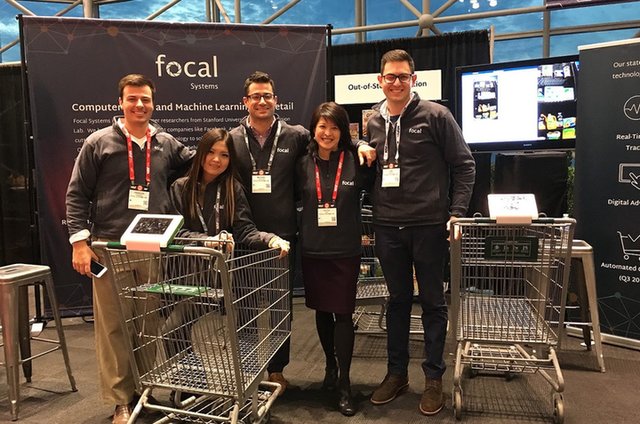
Till that point, Chaubard had not done anything even remotely connected to the world of retail. He had absolutely no experience and was in a way stepping into an unknown space. "Jumping into a field that I didn't know didn't concern me that much. I've been a strong student my whole life. Be it working on missile systems at Lockheed Martin or involved in self-driving car projects at Apple or honing accounting skills in my CFA courses, I have never shied from learning new things. The way I looked at it was, there's no one who's an expert at AI and retail. I wanted to be the first one! My idea was to become a student of retail, learn and be an expert and then go build it out," notes Chaubard.
The AI-powered retail automation solution that Chaubard was building would replace the entire way that retailers currently operate their stores which depend on accurate inventory data that has to be manually collected. In a sense, he wasn't taking an incremental approach rather a transformational one that would require the retailers to migrate from legacy, on-premise solutions to embracing AI-powered, cloud-based retail automation solutions.
Persuading retailers to take the leap is easier said than done. "There's always a fear of change. This is more so because retailers aren't knowledgeable on what AI can do for them. That's a big problem!" notes Chaubard. He doesn't hesitate taking off his Focal hat and puts on the Stanford lecture hat to educate retailers about the immense potential of AI. At Stanford, Chaubard had taught Machine Learning for 4 years in Andrew Ng's famous CS229 course. He had also co-created advanced courses in deep learning for natural language processing and computer vision. He has also opened Focal Academy, which offers courses on AI for Retail Executives. He has created a number of short courses that teach retailers the core fundamentals of AI and how it can be used in retail.
In his convincing style, which comes naturally to him, Chaubard shows how retailers that are enacting top-down "AI mandates" to adopt automation and AI solutions chain wide are going to crush the retailers that don't. He presents his case to them on how retailers will offer significantly lower prices and better customer experiences with AI. "AI is not a new technology to pilot, it is a new way of thinking. To get the retailers to understand this is definitely an uphill battle--not that I'm afraid of but I think it is inevitable," observes Chaubard.
In the last couple of years, Focal Systems has had massive success. Some of the largest retailers in the world are leveraging Focal's "Self Driving Store"-Operating System powered by computer vision and AI. Focal's clients have already seen staggering results. 60% reduction in replenishment labor spend, 20% reduction in inventory, 50% reduction in shrink, 2% subs on eComm orders vs. 30%, 10% increase in on-shelf availability, 5% increase in sales. Major retailers have proven >50x ROI with FocalOS, making this the most profitable investment in all of retail technology.
As the industry faces inflationary pressures, supply chain issues and labor shortages, retailers will eventually have to embrace Focal's retail automation solution. Marc Andreessen famously said that "software is eating the world." "In my view, over the next 20 years, machine learning technology will eat software, and that algorithms will take over the world, which includes retail" declares Chaubard.
The Road Ahead
Fearless Entrepreneur With Transformational Ideas
COVER STORY
